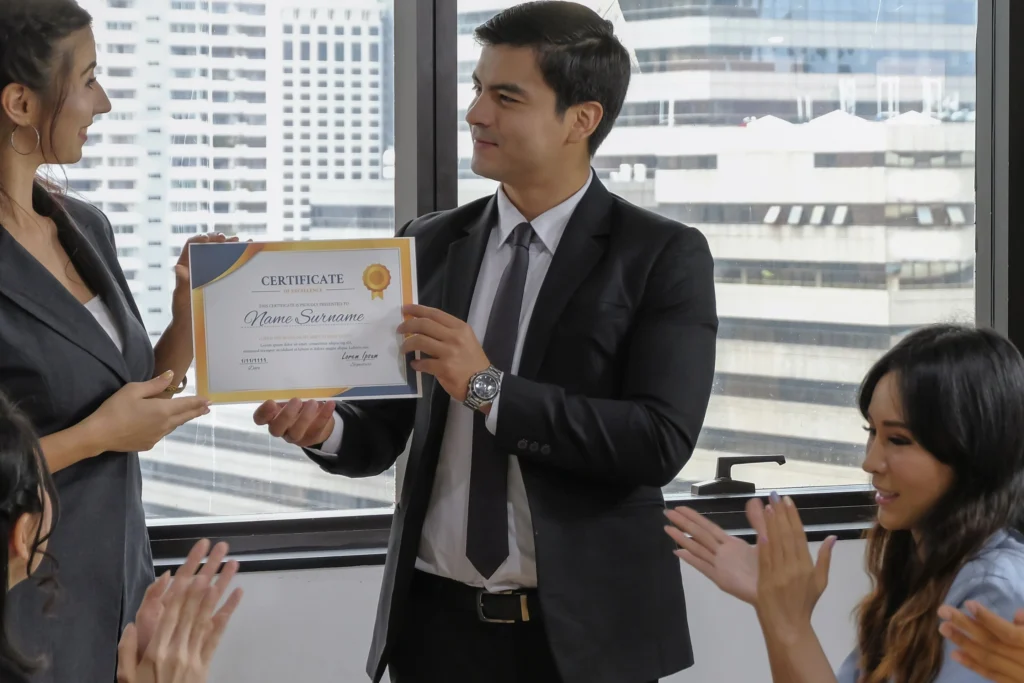INTRODUCTION FOR MASTERING CALIBRATION CERTIFICATES
WHY CALIBRATION MATTERS?
- Accuracy and Precision: Calibration ensures that measuring instruments produce accurate and precise measurements. This is vital for maintaining quality control and ensuring that products meet specified standards and tolerances.
- Quality Assurance: Regular calibration helps in maintaining consistent quality of the products. Deviations from established specifications can lead to defects, which can affect the performance and safety of the products manufactured.
- Regulatory Compliance: Many industries are subject to regulations and standards (such as ISO, FDA, etc.) that require regular calibration of equipment. Compliance with these regulations is essential to avoid legal issues and penalties.
- Cost Efficiency: By ensuring that equipment is properly calibrated, manufacturers can reduce waste and rework caused by inaccurate measurements. This can lead to significant cost savings over time.
- Safety: Inaccurate measurements can lead to unsafe conditions in the manufacturing process or in the final products. Calibration helps to mitigate risks and enhance workplace safety.
- Equipment Longevity: Properly calibrated equipment is less likely to suffer from wear and tear caused by incorrect usage or readings, thereby extending the lifespan of machinery and tools.
- Customer Satisfaction: Delivering high-quality products that meet customer specifications fosters trust and satisfaction, which can lead to repeat business and a strong reputation in the industry.
Overall, calibration is an integral part of maintaining operational excellence, ensuring product reliability, and fostering continuous improvement in the manufacturing sector.
THE WORKSHOPS WILL HELP YOU TO
- Establish a solid understanding of why calibration certificates matter in regulated environments.
- Equip participants to recognize compliance-critical components.
- Demystify terminology for better communication and interpretation.
- Develop familiarity with certificate formats and vocabulary across disciplines.
- Enable participants to design fit-for-purpose calibration documentation.
- Provide personalized, actionable feedback to enhance real certificates.
- Know resolution, precision, and accuracy of a measurement system.
- Build ongoing capacity and provide direction for future learning.
- How to interpret and understand the content of a typical calibration report.
WHO MUST ATTEND
Managers, Engineers, Technicians, Supervisors, and any personnel handling calibrated tools & equipment. Relevant for all industries.
COURS DETAILS
Day 1:
9.00 A.M. – 12.00 P.M.
Module 1: Foundations of Calibration Certificates
- Introduction to calibration and its role in quality management systems.
- Alignment with ISO 9001 and ISO/IEC 17025 standards.
- Emphasis on core principles: traceability, SI units, and regulatory compliance.
Module 2: Understanding Certificate Requirements
- Deep dive into mandatory elements of a calibration certificate.
- Cross-reference with ISO standard clauses.
- Group exercise: Analyze sample submissions to identify missing or non-conforming elements.
1.00 P.M. to 5.00 P.M.
Module 3: Decoding Calibration Terminology
- What is uncertainty in calibration?
- Factors contributing to uncertainty.
- Practical examples of uncertainty in different types of measurements.
Module 4: Sector-Specific Certificate Analysis
- Overview of certificates across various domains: Mass, temperature, pressure, electrical, etc.
- Interactive matching exercise: Link terminology and values to real-world applications.
Day 2:
9.00 A.M. to 12.00 P.M.
Module 5: Customizing Calibration Certificates
- Guidance on tailoring certificate content to organizational and customer requirements.
- Consideration of specific calibration points, intervals, environmental factors, and instrument usage context.
- Design a custom certificate requirement for a simulated case.
1.00 P.M. to 5.00 P.M.
Module 6: Live Certificate Review and Feedback
- Trainer-led review of real-world calibration reports submitted by participants.
- Collaborative analysis: Identify good practices, address formatting, clarity, and compliance gaps.
- Group feedback session: Peer insights and improvement recommendations.
Module 7: Sustaining Knowledge Beyond the Course
- Best practices for maintaining calibration compliance.
- Auditing calibration processes for continuous improvement.
- Risk management strategies for calibration errors.
- Exploration of useful post-training resources: Standards access, calibration tools, online databases, and templates.
- Q&A session: Discuss challenges specific to participants’ roles or industries.
Module 8: Conclusion
- Training Summary
- Post Test Assessment
- Training Evaluation
Participant Preparation Requirements
To maximize practical impact, participants are asked to complete the following before the training:
- Submit a Calibration Report: Provide one anonymized calibration certificate from their organization. Ensure it includes calibration methods, results, and uncertainty values.
- Complete a Pre-Training Survey: Brief survey to understand individual challenges and expectations related to calibration certificates. Inputs will help tailor live reviews and discussions.
Note: Submitted certificates will be used in Session 6 for live demonstrations and feedback.
METHODOLOGY
The seminar consists of 2 days of training workshops. The fundamental workshop will give insight on calibration requirements based on ISO 9001 & ISO 17025.


